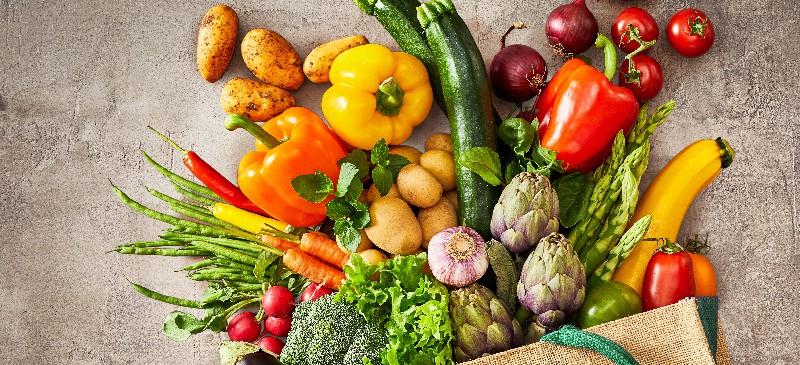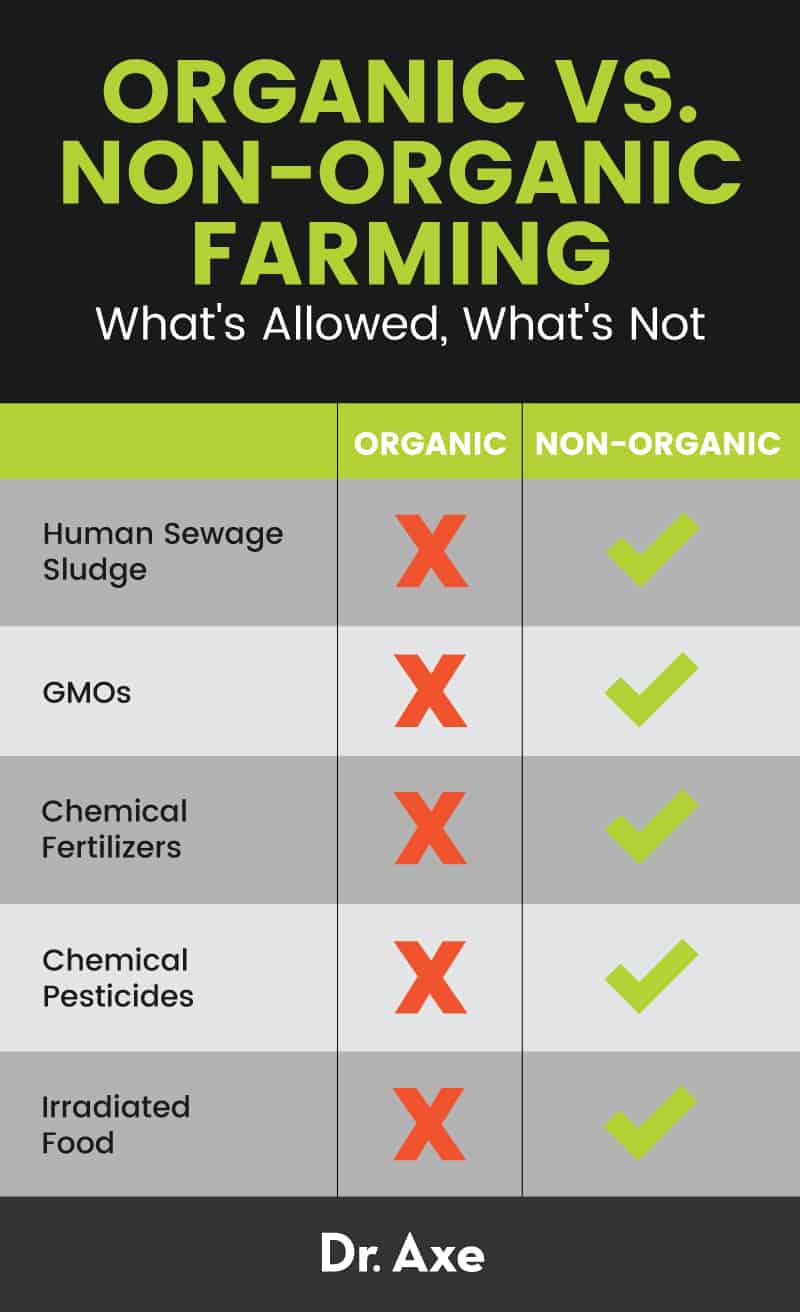This Dr. Axe content is medically reviewed or fact checked to ensure factually accurate information.
With strict editorial sourcing guidelines, we only link to academic research institutions, reputable media sites and, when research is available, medically peer-reviewed studies. Note that the numbers in parentheses (1, 2, etc.) are clickable links to these studies.
The information in our articles is NOT intended to replace a one-on-one relationship with a qualified health care professional and is not intended as medical advice.
This article is based on scientific evidence, written by experts and fact checked by our trained editorial staff. Note that the numbers in parentheses (1, 2, etc.) are clickable links to medically peer-reviewed studies.
Our team includes licensed nutritionists and dietitians, certified health education specialists, as well as certified strength and conditioning specialists, personal trainers and corrective exercise specialists. Our team aims to be not only thorough with its research, but also objective and unbiased.
The information in our articles is NOT intended to replace a one-on-one relationship with a qualified health care professional and is not intended as medical advice.
Organic Food vs. Non-Organic: Benefits of Organic Foods for Health & the Environment
May 21, 2024

In recent years, organic food has become a buzzword in the health and wellness community. More consumers are turning to organic options, driven by a desire for healthier, more environmentally friendly food choices.
There are lots and lots of reasons to eat organic food over non-organic, but it can be hard to distinguish just what exactly constitutes organic foods. The U.S. Department of Agriculture (USDA) admitted as much by updating its guidelines for organic food labeling in 2023.
The USDA explained in a press release:
“Today, the USDA National Organic Program (NOP) previewed the Strengthening Organic Enforcement (SOE) final rule. This update to the USDA organic regulations strengthens oversight and enforcement of the production, handling, and sale of organic products. This final rule implements 2018 Farm Bill mandates, responds to industry requests for updates to the USDA organic regulations, and addresses National Organic Standards Board (NOSB) recommendations.
“‘Protecting and growing the organic sector and the trusted USDA organic seal is a key part of the USDA Food Systems Transformation initiative,’ said Under Secretary for Marketing and Regulatory Programs Jenny Lester Moffitt. ‘The Strengthening Organic Enforcement rule is the biggest update to the organic regulations since the original Act in 1990, providing a significant increase in oversight and enforcement authority to reinforce the trust of consumers, farmers, and those transitioning to organic production. This success is another demonstration that USDA fully stands behind the organic brand.’”
What exactly is organic food, and how does it differ from non-organic options?
This article will explore the essentials of organic food, comparing it with non-organic alternatives, discussing its health benefits and providing tips on how to buy the best organic products.
What Is Organic Food?
Organic food is produced using methods that prioritize natural processes and ecological balance. The specific regulations vary by country, but in general, organic farming prohibits the use of synthetic pesticides, fertilizers, genetically modified organisms (GMOs) and antibiotics in livestock.
Organic farms often focus on regenerative agriculture practices like crop rotation, cover cropping and composting to maintain soil health and fertility.
Organic foods production bans the use of:
- Chemical pesticides and herbicides
- Synthetic fertilizers
- Sewage sludge
- Ionizing radiation
- Bioengineering (GMOs)
- Antibiotics and growth hormones
To earn the organic label, a government-approved certifier inspects the farm and approves the food product. This happens to make sure the grower is following the rules set in place by the United States Department of Agriculture.
When it comes to organic farming, there are strict standards and inspections in place. Organic agriculture only permits the use of natural fertilizers like manure and compost.
Other hallmark methods of organic farming include:
- Crop rotation
- Companion planting
- Natural pest control
- No GMOs
- Replenishing and maintaining soil fertility
- Promoting biodiversity
- Conserving water resources
- Reducing pollution
The newest USDA guidelines for organic foods, which went into effect on March 20, 2023, include the following updates:
- Requiring certification of more of the businesses, like brokers and traders, at critical links in organic supply chains.
- Requiring NOP Import Certificates for all organic imports.
- Requiring organic identification on nonretail containers.
- Increasing authority for more rigorous on-site inspections of certified operations.
- Requiring uniform qualification and training standards for organic inspectors and certifying agent personnel.
- Requiring standardized certificates of organic operation.
- Requiring additional and more frequent reporting of data on certified operations.
- Creating authority for more robust record-keeping, traceability practices and fraud prevention procedures.
- Specifying certification requirements for producer groups.
Organic vs. Non-Organic
The key difference between organic and non-organic food lies in the farming practices used.
Non-organic agriculture may utilize synthetic fertilizers and pesticides to boost yields and control pests. Livestock raised non-organically may be given antibiotics to prevent disease and growth hormones to accelerate development.
Here is more on organic vs. non-organic:
Farming practices
Organic farming uses natural fertilizers like compost and manure, crop rotation, and biological pest control methods.
Non-organic farming, on the other hand, relies heavily on synthetic chemicals and industrial farming techniques to increase yield and control pests and diseases.
Nutritional differences
Some studies suggest that organic foods may contain higher levels of certain nutrients, such as antioxidants, vitamin C, iron, magnesium and phosphorus.
However, the differences are often minor and can vary based on various factors, including the type of food and farming practices used.
Environmental impact
Organic farming is generally better for the environment. It promotes biodiversity, reduces pollution from pesticides and fertilizers, and enhances soil fertility and structure.
Non-organic farming, in contrast, can lead to soil degradation, water contamination and loss of wildlife habitats due to heavy chemical usage.

Organic Foods and Cancer Prevention
Research shows that when people switch from eating conventionally grown foods to more organic foods, concentrations of pesticide metabolites in urine decreases.
Although we know that eating more organic foods and less conventionally grown foods will reduce the amount of pesticide residues in our bodies, what exactly does this mean for our health?
In 2015, the International Agency for Research on Cancer (IARC) classified three pesticides frequently used in agriculture as carcinogenic to humans. Yes, that means that, according to the IARC, glyphosate, malathion and diazinon are chemicals used on our food even though they may cause cancer in humans.
Until recently, evidence supporting the carcinogenic effects of these pesticides was based only on occupational exposure, primarily in agricultural settings.
What about low-level pesticide exposure in the general population, which primarily comes from the intake of conventionally growth fruits and vegetables? That’s the exact question that researchers in France sought to answer with this study.
It’s official: Eating organic foods reduces your risk for developing cancer.
Research out of the Institut National de la Sante et de la Recherche Medicale in France brings incredible news. That’s right, choosing organic foods over conventionally grown foods can reduce your risk of cancer by 25 percent.
The concerning part? More than 90 percent of the U.S. population harbors detectable pesticides in their blood and urine.
What does this mean for our future health? Well, for one thing, big companies that use and produce pesticides may have to start owning up to the data.
Non-industry-funded research repeatedly links these chemicals to cancer.
Another thing to consider? This French study comes on the heels of Environmental Working Group’s testing that detected glyphosate in cereal.
It appears that Monsanto’s Roundup and other pesticides are downright dangerous for our health.
The 2018 October study appeared in JAMA Internal Medicine. It examined the association between self-reported organic food intake and cancer risk.
Researchers collected data on more than 68,900 French adults, with a mean age of 44 years, in order to establish their organic food consumption frequency and dietary intake.
For 16 food products, including fruits, vegetables, dairy, meat, fish, eggs and vegetables oils, the participants reported how often they chose organic over conventional options by selecting one of eight categories, including “never,” “occasionally” and “most of the time.”
Based on an individual’s self-report, researchers computed an “organic food score” and used it to estimate a person’s risk of cancer.
Study authors followed the participants for a mean of five years, analyzing the incidence of cancer during a follow-up assessment.
Of the 68,946 volunteers, 1,340 developed cancer, including 459 cases of breast cancers, 180 prostate cancers, 135 skin cancers, 99 colorectal cancers, 47 non-Hodgkin’s lymphomas and 15 other lymphomas.
Researchers pointed out that among these types of cancer, individuals with a higher frequency of organic food consumption enjoyed a reduced risk for three specific cancer sites: postmenopausal breast cancer, non-Hodgkin’s lymphoma and other lymphomas.
According to researchers, eating a higher frequency of organic foods correlated to a 25 percent lower risk of cancer diagnosis.
More specifically, people eating the highest intake of organic foods experienced a 73 percent lower risk of developing non-Hodgkin’s lymphoma and 21 percent lower risk of developing postmenopausal breast cancer.
Drawbacks of Study?
Although this data suggests what we already suspected — that eating organic foods is likely better for human health — there are some drawbacks to this particular study that we need to address.
One possible weakness of the study lies in the fact that organic food intake is notoriously difficult to assess. Eating at a restaurant, takeout spot or friend’s house makes it more difficult to verify food sources, so there may be an issue of misclassification in some cases.
Plus, not all conventional foods are equal. Some contain more pesticides (or more potent pesticides), and this study doesn’t take this into account.
If a study participant chose to go organic with all “Dirty Dozen” foods from EWG but went conventional for the rest, that’s not considered here, either.
Also, researchers admit that the follow-up time for this study was short. This may have limited the statistical data for some forms of cancer.
Finally, people who did not choose to eat organically grown foods had the option to disclose their reasons for doing so. These included:
- Price barriers
- Limited availability
- Lack of interest
All participants who did not choose organic foods, no matter the reason, were lumped into one category. This may be a drawback because people who lack interest in organic foods entirely may experience an overall more negative approach toward health, which could influence the results of the study.
Other Health Benefits
1. Reduced pesticide exposure
One of the primary health benefits of organic food is reduced exposure to harmful pesticides. Farmers grow certified organic produce without synthetic fertilizers, chemical pesticides, preservatives, genetic modification, sewage sludge or radiation.
Conventional farming often uses synthetic pesticides, which can leave residues on food. Although these residues are generally within regulated safety limits, some people prefer to avoid them altogether by choosing organic options given they are associated with harmful effects.
Organic foods are better for the environment. Organic farms don’t pollute soil and nearby waters with harmful and toxic chemicals.
2. Better taste
Many consumers report that organic food tastes better, attributing this to the methods of organic farming, which emphasize quality over quantity.
While taste is subjective, fresher and more naturally grown produce can have a more robust flavor.
3. No GMOs
To be certified organic, foods cannot contain or grow from genetically modified seeds. Thus, organic foods are GMO-free.
For consumers concerned about the potential long-term health impacts of genetically modified organisms, organic food provides a clear alternative.
4. Better animal welfare
Organic livestock regulations promote better living conditions for animals, which may translate to healthier meat and dairy products.
5. Potentially improved nutrient content
Some studies suggest that organic fruits and vegetables may contain higher levels of certain antioxidants. For instance, research shows that organic foods contain higher amounts of health-promoting antioxidants and lower levels of cadmium, a harmful heavy metal.
Is All Organic Food Nutritious?
While organic food has many benefits, it’s important to note that not all organic food is inherently nutritious.
Organic junk food exists, and it can be just as unhealthy as its non-organic counterpart.
For instance, organic cookies, chips and sugary snacks may still be high in sugars, fats and empty calories.
Therefore, it’s crucial to focus on whole, unprocessed organic foods, like fruits, vegetables, grains and lean proteins for maximum health benefits.
How to Buy Organic
Here are some tips for navigating the organic aisle:
1. Read labels carefully
You can’t trust misleading food labels. Terms like “Natural,” “All Natural” and “100% Natural” are meaningless and don’t guarantee that the product is organic.
Look for official organic certification labels such as the USDA Organic seal. This ensures the product meets stringent organic standards.
2. Shop locally at farmers markets
Buying from local farmers markets can ensure you get fresh, seasonal, organic produce. Additionally, it supports local farmers and reduces the carbon footprint associated with transporting food.
Look for farmers markets or community supported agriculture programs to connect directly with local organic farmers.
3. Prioritize your purchases
Organic food can be more expensive.
Prioritize buying organic for the “Dirty Dozen” — a list of fruits and vegetables that typically have the highest pesticide residues. If you prefer to only buy some organic foods, then these should be the ones.
Conversely, the “Clean 15” foods tend to have lower residues, so you can buy non-organic versions of these with less concern.
4. Grow your own
If you have the space and time, consider growing your own organic vegetables and herbs. This can be a cost-effective way to enjoy fresh, organic produce right from your backyard.
5. Buy seasonal foods
Organic produce that’s in season tends to be more affordable and flavorful.
Final Thoughts
- Organic food offers numerous benefits, from reduced pesticide exposure and environmental sustainability to potentially better taste and nutrition.
- However, not all organic foods are created equal, and being mindful of your choices is essential.
- A study addressing the organic vs. non-organic food debate suggests that choosing organic is better for your health. This study specifically found a link between eating more organic food and experiencing a reduced risk of cancer.
- More human data is needed, but it does indicate that promoting organic food consumption in the general population could serve as a promising preventive strategy against cancer.
- We do know that other factors, like body weight, diet and physical activity, definitely do influence your risk of developing cancer.
- It’s true that organic foods are usually more expensive and sometimes even difficult to find in some areas of the country. Keep in mind that higher intake of cancer-fighting foods, like fruits and vegetables, whether they are organic or conventional, is still encouraged as part of a well-balanced and healthy diet.
- You don’t want to cut out these important nutrient-rich food groups altogether just because they aren’t organic. To be extra safe, when organic foods are not an option, try avoiding the “Dirty Dozen” fruits and vegetables that are known to be contaminated with high pesticide residues.
- The USDA also updated rules on what constitutes organic foods, making it more effective on identifying truly organic foods.
- By understanding what organic means, recognizing the differences from non-organic options, and learning how to make smarter buying decisions, you can enjoy the benefits of organic food and contribute to a healthier lifestyle and planet.




